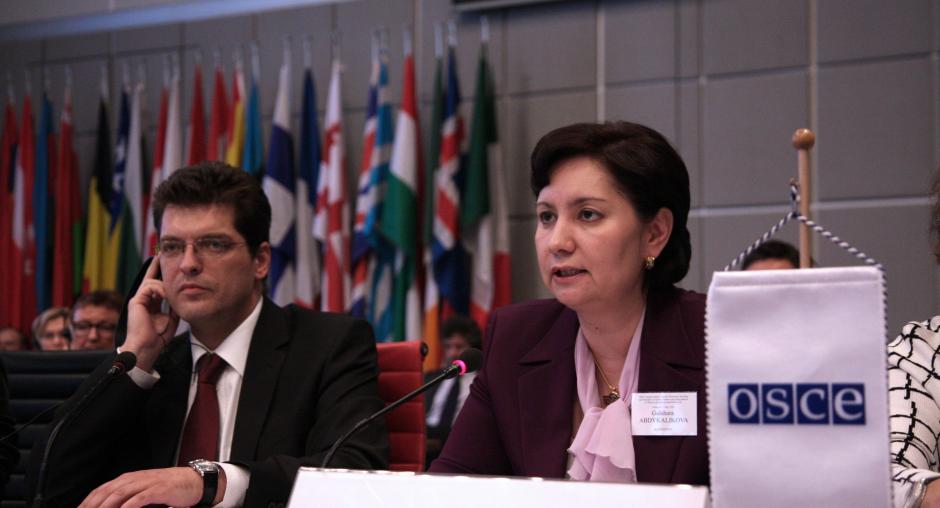OSCE meeting on gender equality begins with calls for more action on increasing women's participation in public life

VIENNA, 6 May 2010 - A special OSCE meeting on gender equality got underway today with participants calling for increased action by participating States to promote the participation of women in political and public life.
Speakers at the opening of the two-day meeting, which is organized by Kazakhstan's OSCE Chairmanship and the OSCE Office for Democratic Institutions and Human Rights (ODIHR), pointed out that progress on ensuring equality between women and men remained patchy and uneven.
Ambassador Janez Lenarcic, ODIHR's Director, said gender balance is a question fundamental to any democracy: "If the high degree of legitimacy that democracy enjoys is to be sustained, achieving de facto equality needs to top the agenda of policy-makers."
He added that democracy remains a mere aspiration if significant parts of the citizenry are in effect excluded from public affairs.
The representative of the OSCE Chairperson-in-Office, Kazakhstan's Minister of Labour and Social Protection Gulshara Abdykalikova, stressed the importance of implementing the OSCE's 2004 Action Plan on Gender Equality and made some concrete proposals on how to achieve this: "To effectively promote gender balance, it is useful to conduct joint training sessions for state officials and representatives of non-governmental organizations, introduce gender aspects into budgeting processes at all levels and develop mechanisms enabling men and women to balance work and family life." She also suggested considering the creation of a Eurasian OSCE Institute of Gender Equality in Astana as a catalyst for the active promotion of gender mainstreaming in the region.
Elza Pais, Portugal's State Secretary for Equality and keynote speaker at the opening, highlighted the benefits of women's equal participation in public life: "This is not about political correctness or a question of benevolence vis-Ã -vis women. It is about the efficient development of society."
She said women represent an indispensable resource that society cannot afford to waste, in particular in view of the current economic and financial crisis.
During the meeting, some 250 participants from the OSCE's 56 participating States will review the progress achieved and identify outstanding challenges with regard to gender balance and the effective participation of women in public life. This includes discussions on empowering women as political party members and elected officials.
